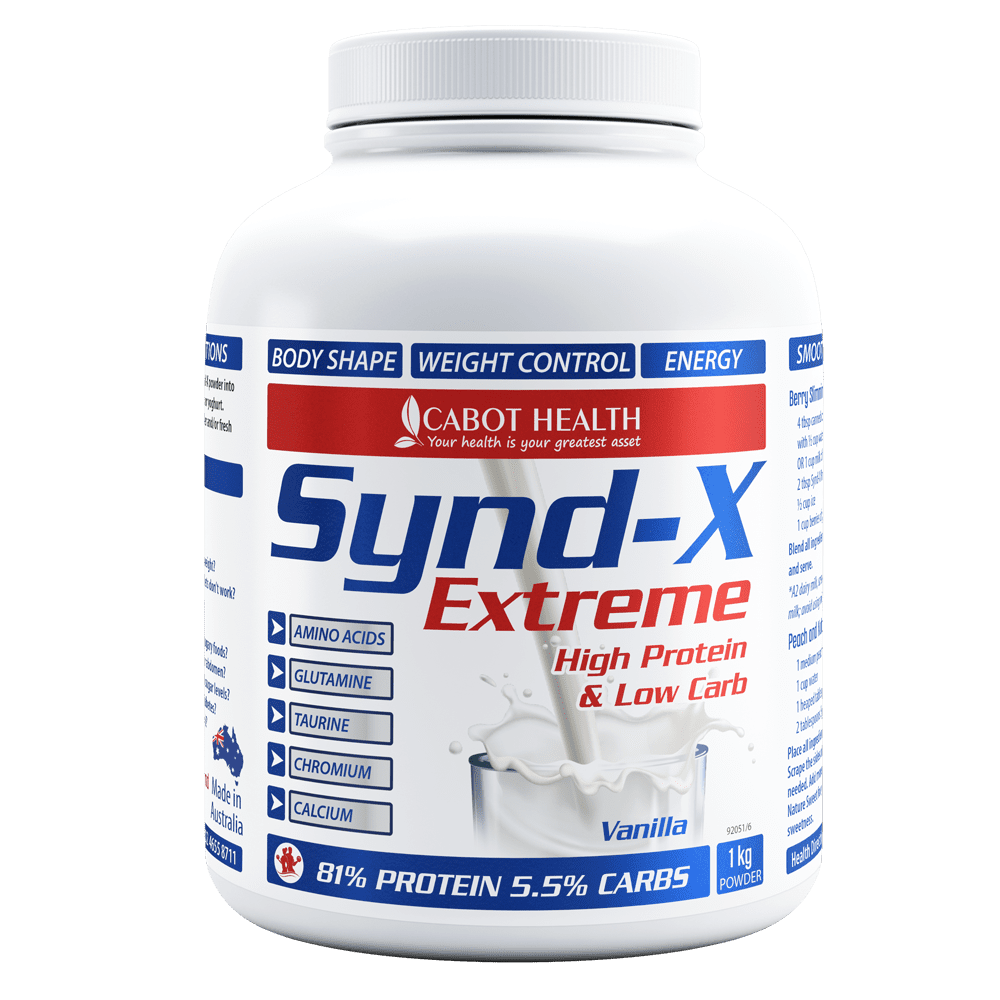Top 10 benefits of using protein powders
By Louise Belle BHSc (Nut Med)
Whey protein is a hot topic across the world right now and it’s important to note that whey isn’t just the fuel of big-bodied muscle heads. Don’t get us wrong! If you’re fitting in good quality workouts and sticking to a diet filled with lean protein, nutrient-rich fruit and vegetables and good quality carbs, and you’re still not seeing results, whey protein will help you to achieve your goals. However, this is not the only reason that whey protein should be an integral part of your daily routine.
1. Building and repairing muscle
The body breaks down dietary protein into amino acids, which are then used as building blocks for synthesising skeletal muscle in the body. Muscle is naturally broken down in the body, so it is very important to maintain adequate dietary intake of protein to maintain lean muscle mass. When we exercise, we get small tears in the microfibres of our muscles. Dietary protein is used to repair these microtears and to build and strengthen the muscles. If you are exercising and not eating enough protein, your recovery time will be longer.
2. Improved mood and sleep
The body requires particular amino acids for the production of neurotransmitters (chemicals) in the brain. Some examples of these brain chemicals are serotonin, dopamine, GABA, adrenalin and noradrenalin, which you have most likely heard of before. Depleted levels of neurotransmitters have been linked with low or unstable mood and poor sleep quality. The body uses dietary protein to synthesise these neurotransmitters, which can help to stabilise and improve overall mood and can enhance sleep quality.
3. Balancing blood sugar
Protein digests slowly and helps to balance blood glucose (sugar) levels and can reduce sugar cravings. When protein is lacking in the diet, it is more likely that you will experience steep rises and falls in blood sugar, which can cause energy crashes within the hours after eating. Having protein regularly throughout the day can help to prevent the energy crashes and to maintain healthy blood sugar, which is particularly important for those with insulin resistance and type two diabetes.
4. Fat burning
Protein has a higher thermic effect of food (TEF) compared to carbohydrates and fat, which means that more calories are used to digest and metabolise the protein. Protein also helps to boost metabolism and it reduces overall appetite and cravings for snacks, which can contribute to an overall reduction in weight and fat percentage. Maintaining muscle mass through adequate protein intake, will boost the overall metabolic rate and increase fat burning.
5. Wound healing
Protein plays a vital role in wound healing and tissue repair after injury. Studies have shown that inadequate protein intake can delay wound healing by prolonging the inflammatory phase, slowing down collagen synthesis and preventing the remodelling stage of wound healing. There is an increased need for protein during injury for the regeneration and repair of tissues. If you have an injury of any kind, it is important that you consume enough protein to support and speed up healing.
6. Strengthens the immune system
The immune system is made up are various immune cells that are involved in detecting, fighting and destroying foreign pathogens (such as bacterial and viral cells). Protein is required for the synthesis of these immune cells, and is needed in greater amounts when the body is fighting an infection. Ensuring adequate protein is particularly important in winter, when we are exposed to a higher number pathogens.
7. Gut health
Protein is used by the body to synthesize enzymes, including the digestive enzymes that are required for breaking down and digesting the food we eat. A lack of digestive enzymes can lead to symptoms of bloating, reflux and abdominal pain and can affect nutrient absorption. Particular amino acids are needed to reduce inflammation and heal the gut lining in cases of leaky gut, irritation, gastritis and ulceration. Protein is needed to maintain overall gut health.
8. Hormone function
There are a class of hormones, referred to as peptide or protein hormones which are made up of amino acids. Some examples of these hormones include growth hormone, prolactin and insulin which are vital for our overall health. When hormones are secreted by the endocrine glands, they bind to protein carriers (like transportation vehicles) in the blood, which transport them around the body. Maintaining adequate protein intake is vital for the production and function of our hormones.
9. Healthy hair, skin and nails
Our hair, skin and nails are made up of protein. Collagen is the most abundant protein in the body, and is responsible for keeping our skin strong and elastic. If protein is deficient in the diet, the body will utilise protein for the most important functions, and will neglect less important structures such as the hair. Studies have shown that protein can modulate hair growth and strength, which is why it is often present in hair products. Improving intake of protein is an easy way to keep yourself looking youthful.
10. Energy source
When glucose and glycogen stores are depleted (these derived from carbohydrates), the body can use protein to energy production. During times of intense exercise regimes or strict dieting, protein serves as a vital nutrient for producing energy to perform bodily functions.
Not all protein powders on the market have been created equally. Many of them are made using poor quality ingredients, fillers, sugars and artificial sweeteners and can be high in carbohydrates. Synd-X Protein powder has been formulated using pure full spectrum whey protein concentrate to provide you with the best possible source of protein. It is the most absorbable form of protein available and is easily digested and utilised by the body. Synd-X contains a unique formulation of pure whey protein, essential amino acids and minerals that have been combined together to nourish and support your body. It is extremely low in carbohydrates and provides you with a massive 420mg of essential amino acids and protein fractions per gram.










Leave A Comment